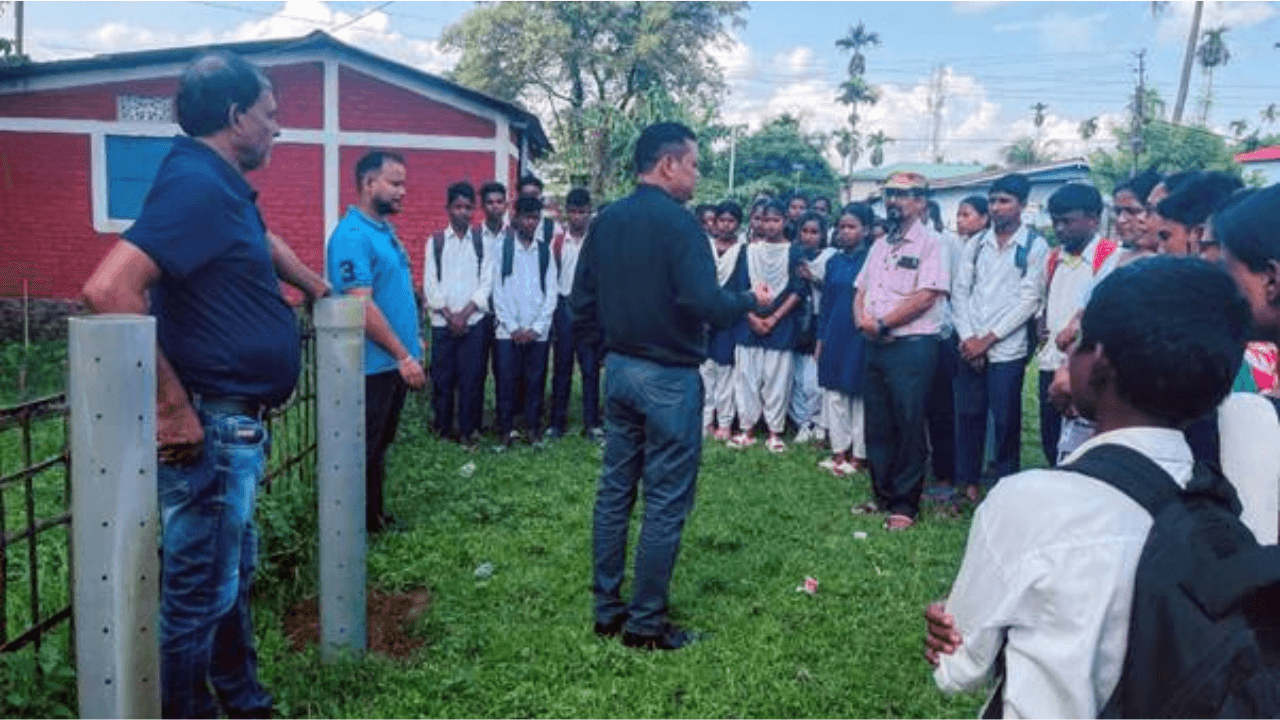Assam is taking proactive steps to promote pipe composting as a practical and efficient method for managing biodegradable waste at the household level. This initiative aligns with the ongoing Swachhata Hi Seva campaign. In Biswanath District, Assam, the District Water and Sanitation Committee has been actively endorsing pipe composting, particularly in schools, where it helps manage the biodegradable waste generated during midday meals.
As part of the Swachhata Hi Seva 2023 program, district officials have installed two composting pipes at Chariali Majaliya ME School. This effort aims to raise awareness and encourage the adoption of pipe composting as an effective waste management solution in rural communities.
What is Pipe Composting?
Pipe composting is an innovative and eco-friendly method for converting organic waste into valuable compost. This technology utilizes PVC pipes with a diameter of 8 to 10 inches and a length of 1.25 meters. The process involves placing these pipes vertically in the ground, leaving them 25-30 cm below the surface. Only biodegradable waste materials such as leftover food, fruit and vegetable peels, flowers, dung, and agricultural waste should be disposed of into the pipes.
To accelerate the decomposition process, a mixture of cow dung, dry leaves, and water is added every two weeks. It’s crucial to keep the pipes closed to prevent rainwater from entering. After a period of approximately two months, the composted manure can be retrieved by lifting the pipe. This sustainable approach not only reduces waste but also produces nutrient-rich compost for agricultural purposes.
Benefits
Pipe composting offers several significant advantages:
- Efficient Waste Conversion: It rapidly transforms biodegradable waste into valuable compost, reducing the amount of waste in landfills.
- Environmental Friendliness: It is an eco-friendly method that doesn’t harm the environment, as it minimizes methane emissions and landfill waste.
- Clean and Hygienic: Pipe composting maintains a clean and hygienic environment in areas like school campuses. It is odorless and minimizes the presence of flies.
- Space Efficiency: The system is space-efficient, making it suitable for areas with limited available space.
- Sustainability: PVC pipes can be reused multiple times, making the system sustainable and cost-effective.
- Educational Value: It provides an educational opportunity for students to learn about decomposition, microorganisms, waste management, and sustainability, fostering environmental awareness.
Overall, pipe composting is a practical and educational solution for managing biodegradable waste while promoting a clean and green environment.
- Weekly Current Affairs 2025 PDF For Bank, SSC, UPSC Exams
- Unsung Heroes of India: 10 Unknown Freedom Fighters You Should Know
- 26 December Current Affairs 2023 in English
- Daily Current Affairs 2025, Check Today’s Current Affairs
- April Month Current Affairs 2024, Download PDF
- June Month Current Affairs 2024, Download PDF

Hello, I’m Aditi, the creative mind behind the words at Oliveboard. As a content writer specializing in state-level exams, my mission is to unravel the complexities of exam information, ensuring aspiring candidates find clarity and confidence. Having walked the path of an aspirant myself, I bring a unique perspective to my work, crafting accessible content on Exam Notifications, Admit Cards, and Results.
At Oliveboard, I play a crucial role in empowering candidates throughout their exam journey. My dedication lies in making the seemingly daunting process not only understandable but also rewarding. Join me as I break down barriers in exam preparation, providing timely insights and valuable resources. Let’s navigate the path to success together, one well-informed step at a time.






